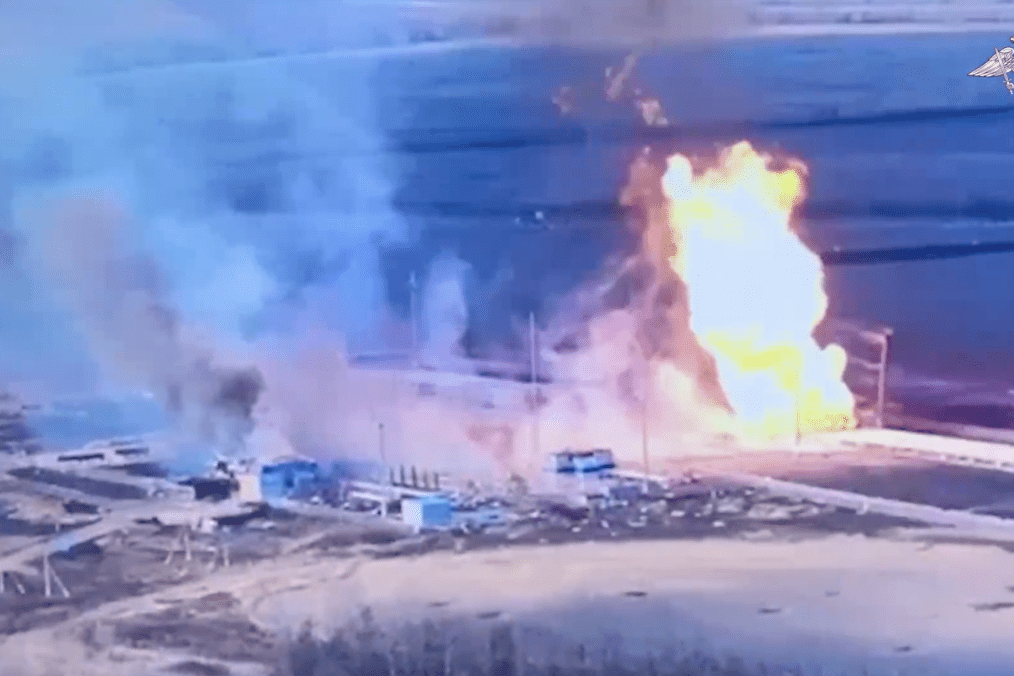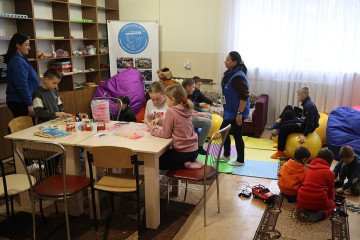- Category
- Latest news
Russia Claims Ukraine Strikes Sudzha Oil Facility With HIMARS as It Targets Ukrainian Energy Sites

On March 28, the Russian Defense Ministry accused Ukrainian forces of launching a new strike on the Sudzha gas metering station in Kursk region using US-supplied HIMARS multiple rocket systems.
The ministry claimed the attack occurred in the morning and resulted in a major fire at the facility. According to state-controlled media, the gas station in Sudzha continues to burn.
“A large fire broke out, and the energy facility has been effectively destroyed,” the Defense Ministry stated in its official report.
The Russian Defense Ministry also reported additional Ukrainian attacks targeting critical infrastructure on March 27 and 28.
According to the ministry, Russian air defense systems intercepted and destroyed 19 Ukrainian fixed-wing combat drones over Saratov region on the morning of March 28. The drones were reportedly aimed at infrastructure belonging to the Saratov oil refinery.
At the same time, overnight on March 28, Russia carried out a large-scale UAV strike targeting industrial zones in Ukraine’s Odesa and Poltava regions, damaging both civilian and energy infrastructure. According to Ukrainian presidential adviser on communications Dmytro Lytvyn, at least two confirmed Russian strikes in the past 24 hours have hit energy facilities.
In a post on X, Lytvyn stated:
“In just the past 24 hours, there have already been at least two confirmed Russian strikes that damaged Ukraine’s energy infrastructure—and that’s without complete daily reports. Preventing further attacks like these is the responsibility of our international partners.”
Earlier on March 20, the Sudzha gas metering station—Russia’s last operational route for gas transit to Europe via Ukraine—was reportedly struck, according to Russian media.
Russian officials accused Ukraine of the attack. However, Ukraine’s military denied involvement, claiming instead that the damage was caused by Russian artillery. Ukrainian authorities stated the accusation was part of a broader disinformation campaign by Moscow.


-111f0e5095e02c02446ffed57bfb0ab1.jpeg)

-72b63a4e0c8c475ad81fe3eed3f63729.jpeg)

